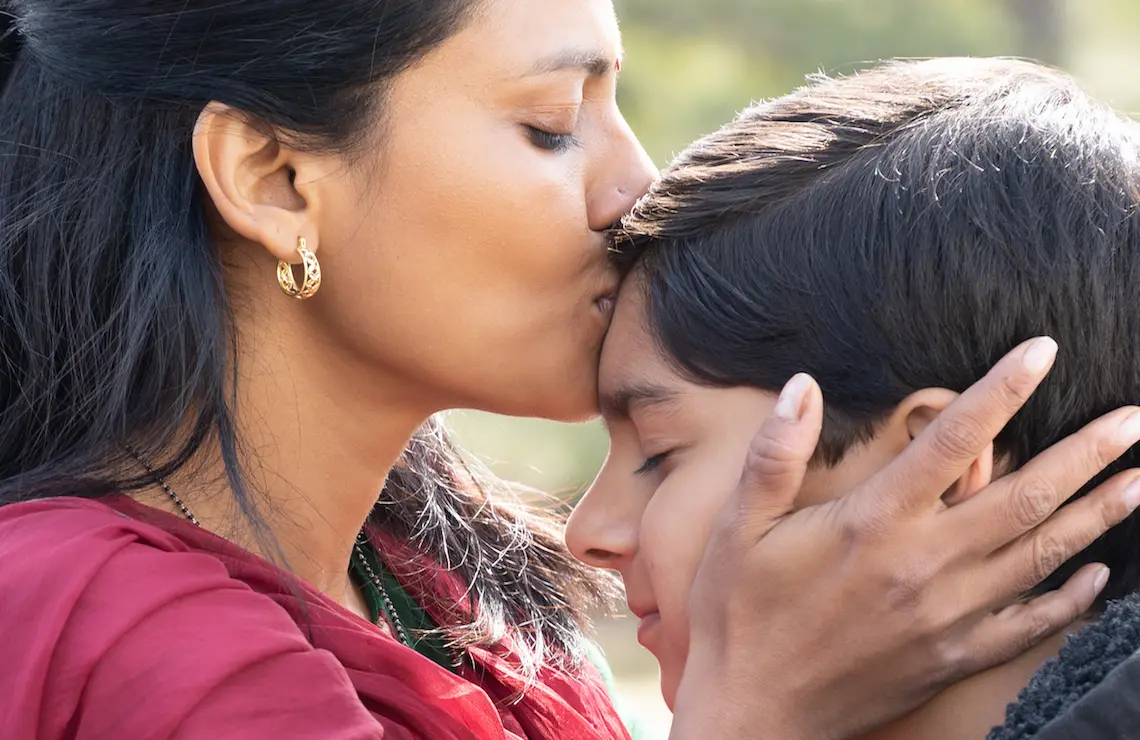On Apple TV+’s Little America, Little Stories Say a Lot
-

The volume knob on American civil discourse seems to be stuck on eleven. The loudest voice, the hottest take, the viralest tweet are what win the news cycle. I remember a time, though, when the idea was to win hearts and minds. Little America, a beautifully crafted new anthology on Apple TV+, takes the emotion and noise out of one of our most contentious political topics — immigration — and replaces it with poetry, humor, and the compelling stories of ordinary people seeking a better life in these United States.
I’m not opposed to television that amplifies the horrors currently enabled by our immigration culture. I’ve praised Living Undocumented’s work on the scandal of ICE-enforced family breakups and John Ridley’s third season of American Crime, which depicted the plight of rural migrant workers. Too much focus on worst-case scenarios, though, can overshadow the fact that for millions of recent immigrants, America remains a destination of promise and opportunity. Their journeys are seldom easy, and too often we hear only the most two-dimensional, Horatio Algerian epics and not the very human stories of the vast majority of immigrants who didn’t found billion-dollar companies.
In 2018, the magazine Epic commissioned a set of stories about the immigrant experience called “Little America.” These were, for the most part, disarmingly modest fish-out-of-water stories, like the Kansas woman who decided to run for mayor of her adopted town by circulating pictures of herself in traditional Indian garb, which sounds like something her opponent would do. Or the escapee from the Soviet bloc who was miserable with his new life in Boston until a priest suggested he try moving to Las Vegas — and took him to a strip club to prove it.
Apple TV+ bought “Little America,” and producers Lee Eisenberg, Kumail Nanjiani, and Emily V. Gordon got to work fictionalizing the stories. (Apple liked what it saw, and based on the first series of eight episodes, recently renewed Little America for a second series.) The resulting set of half-hour films use humanity, humor, and warmth to show, from eight different and very human perspectives, how fitting into a new society means overcoming two formidable obstacles — other people and yourself.
Little America is hardly the first time a streaming TV service has turned to user-contributed stories to feed its endless craving for content. The New York Times has made a cottage industry of such adaptations — its medical mystery column “Diagnosis” is a docuseries for Netflix, and its romance column “Modern Love” was fictionalized for Amazon. But while Modern Love was told exclusively from the point of view of New Yorkers, giving the whole series a consistently annoying tone, the stories on Little America cover a satisfying spectrum of perspectives.
Take the first episode, “The Manager,” about a boy who is left running his family’s Utah motel after his parents are deported to India. That wasn’t the plan, but when it’s clear their absence will be lengthy, the thin safety net they’d hastily constructed for him soon frays. As the boy develops into a young adult (played by Suraj Sharma), he’s forced to make the best of a bad situation. There are uplifting moments in the episode, but the overall tone is melancholic, befitting a lost childhood.
By contrast, a later episode, “The Silence,” is a quirky tale of romance featuring a woman (Mélanie Laurent) and man (Bill Heck) who fall in love at a backwoods retreat where no one is allowed to speak. They carry out their courtship in total silence, even when they sneak off to buy potato chips and listen to music in her car. Along with the hilarious vignettes of a roomful of novices learning meditation, these scenes lend the episode a lighthearted air and a surprising amount of suspense — who, after all, is the immigrant here, and what’s their story? Nobody’s saying.
Even the episodes of Little America that tell more conventional immigrant success stories are not what you’d expect. Take “The Jaguar,” a retelling of Reyna Pacheco’s first-person account for Epic. Though details were removed or altered for television, and her name was changed to Marisol for some reason, her core story remains. An undocumented 13-year-old living in San Diego with a bad attitude and little direction, Reyna’s life turns around when she learns to play squash.
In the retelling, Marisol (winningly portrayed by Jearnest Cachado) takes up the sport for the free shoes, then sticks with it because her coach (played by John Ortiz) tells her she is a “jaguar,” an athlete with instinctive fight. You’re expecting an inspirational championship scene at the end, complete with soaring orchestral score. But it never comes, and you’re left instead to ponder this feisty, brown-skinned teenager who has made her family happy by succeeding at a rich white person’s game, and all that implies.
There’s a scene in that episode where Marisol’s coach is trying to impress upon her the importance of scouting out each squash court where she plays. They step close to a wall blackened by thousands of rubber ball marks. “Every one of these marks is a different decision,” he tells her. “If you listen, you can hear their stories.”
I’m listening.
People are talking about Little America in our forums. Join the conversation.
Aaron Barnhart has written about television since 1994, including 15 years as TV critic for the Kansas City Star.
TOPICS: Little America, Apple TV+, American Crime, Living Undocumented, Modern Love, Lee Eisenberg